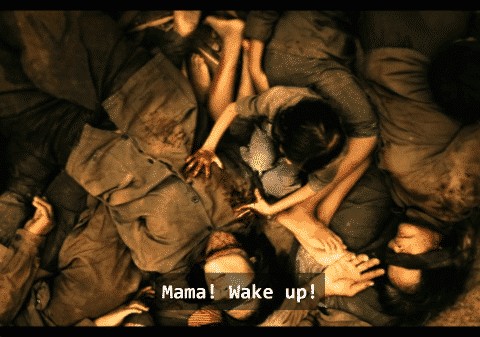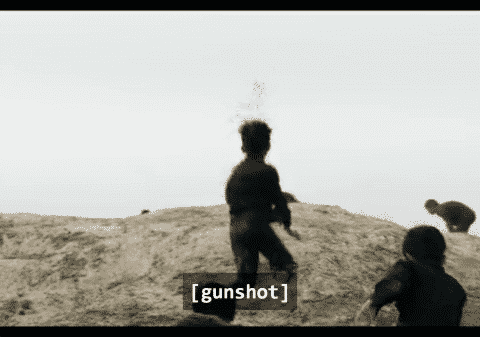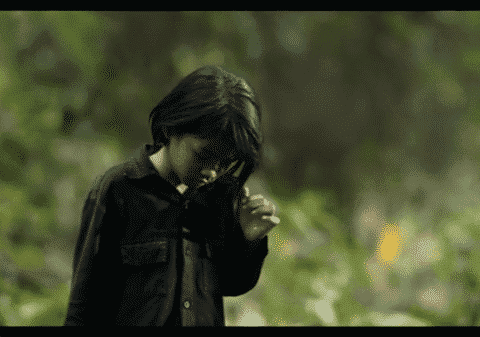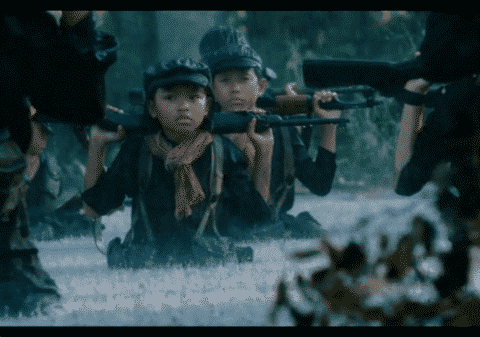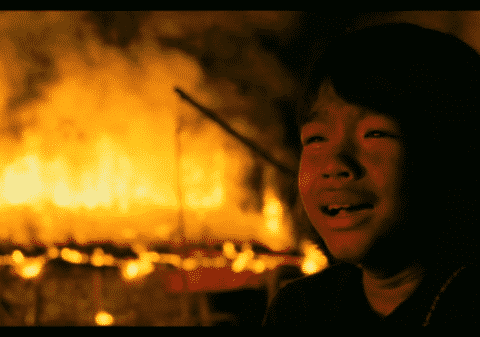First They Killed My Father: A Daughter of Cambodia Remembers (Movie) – Overview/ Review (with Spoilers)
First They Killed My Father is perhaps the best war movie, be it theatrically released or online, in years. For it isn’t about patriotism but about history. One which this movie actually makes you want to explore further. Trigger Warning: Violent Images Used Below Summary It all began April 1975. Loung (Sareum Srey Moch), just…

Spoiler Alert: This summary and review contains spoilers.
Additionally, some images and text may include affiliate links, meaning we may earn a commission or receive products if you make a purchase.
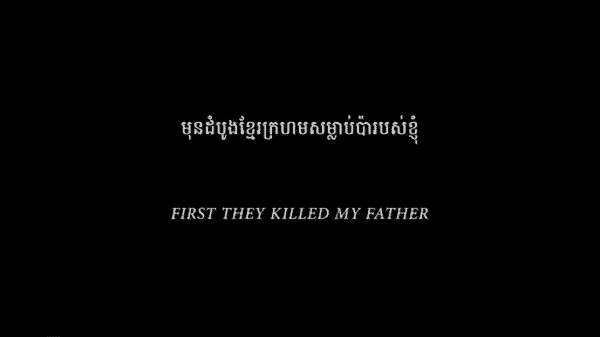
First They Killed My Father is perhaps the best war movie, be it theatrically released or online, in years. For it isn’t about patriotism but about history. One which this movie actually makes you want to explore further.
Trigger Warning: Violent Images Used Below
Summary
It all began April 1975. Loung (Sareum Srey Moch), just 5 years old at the time, has her whole world stolen from her bit by bit. A city girl, she is forced to leave that life behind for the rural areas of Cambodia. She finds herself participating in hard labor but at least she has her family. That is, until they get stripped from her too. First, it is her older brothers. Then her father (Phoeung Kompheak), and then her mother (Sveng Socheata) sends her and her remaining siblings, Kim (Mun Kimhak) and Chou (Run Malyna), away and asks of them to pretend to be orphans.
Which, without the protection of her mom, leads her to become a child soldier. One that may not end up on the front lines, but does see combat. Bodies blown to bits, children shot in the heads, and what makes things worse is: some of the landmines that go off, she planted them. She has become part of the war as more than a victim or refugee. Loung has become a perpetrator.
Leaving you to wonder, at the end of the Khmer regime which, in First They Killed My Father, we cover around 2 years of, what were the long-term effects? Not necessarily in terms of how it affected the country, though that is important, but more so how it affected Loung. For, outside of the final scene, we only know Loung as a child and though the real Loung Ung wrote the screenplay, we only get but a slice of her life.
Highlights
The Brutality of War
Nearly all the aspects of war are included to help you understand how everything snowballed in Loung’s life. Be it the Americans’ involvement in Vietnam, alongside general western imperialism, and how that affected neighboring countries, as well as how the Khmer Rogue systematically subjugated people to their will. That is what largely covers the first half, laying the foundation.
But then, in the second half, we see violence beyond getting hit with the butt of a gun or being slapped around. You get eye-opening violence which makes you develop hawk-like focus as you worry whether Loung may survive, much less her family. And unlike many a war film, nothing is held back here. We are reminded that men, women, and especially children are affected by the decisions of the world’s politicians. And those who don’t play a role, who live under regimes willing and enabled to take every morsel of what helps craft the idea of humanity, we see the price they pay for another’s ignorance or indifference.
Moch’s Performance and Childhood Trauma
Something which gets really pushed into you by Moch’s performance. For she goes beyond simply crying as family members are lost, or even when possessions are left behind. What we get from her is trauma. The kind where all you can do is stand and watch sometimes and imagine what life used to be. To suppress all these negative emotions and have the occasional fantasy.
Yet, that takes work and effort. Something that, when you let your guard down, like when you are sleeping, you can’t maintain that façade or keep those happy memories fueling your drive. That is when reality hits and you see the dead. The dead which includes your father who between a gunshot or axe is probably in a huge pit. Likely, within days, buried not due to dirt or ceremony. No. Rather, buried because 15 bodies are now on top of them.
All of which Moch pushes into you and makes it so you just want to see this child survive. Being happy seems like a far-fetched goal, but with the tears she cries, and also inspires you to shed, you just want her to make it out alive. Hopefully without a limb missing or having the death of her siblings on her conscience.
Criticism
I Don’t Know Who Is Who Anymore
In First They Killed My Father, the Khmer Rogue forces everyone to strip themselves of individualism. The claim is that it is part of the toxic culture of the west. Well, with that in place, honestly it became hard as hell to know who is who. To the point that, despite taking notes about all of Loung’s siblings’ names, I couldn’t tell you who any of them all.
Not just because of the stripped individualism mind you, but also because you don’t get much in the way of personality with the kids. Ma and Pa you get a sense of, because Pa seems like such a sweet man and his wife is also nice, and quite beautiful. However, when it comes to the kids, outside of Loung, whose perspective we rely on, we’re reliant on Loung repeating their names repeatedly. Like with Kim and Chou.
On The Fence
The First Hour Can Be A Bit Boring
As noted in the “Brutality of War” topic, First They Killed My Father begins with showing the oppression of the Cambodia people and how they were forced to abandon everything and live life in the countryside. Now, if you’re like me, and not watching this in a theater, you may possibly become bored out of your mind. Especially since, as noted, the characters don’t have much personality. Be it they are just average people or because things like showing affection were punishable, you don’t see a lot in the first half to cling to. There isn’t a comic relief, interesting relationships, or anything that really makes the first half beyond them building up for the climax and all the action of the second half. So patience is definitely required and reliance on Pa and Ma trying to keep their family together is the sole driving force to keep your attention. Just be prepared for that.
Overall: Positive (Worth Seeing)
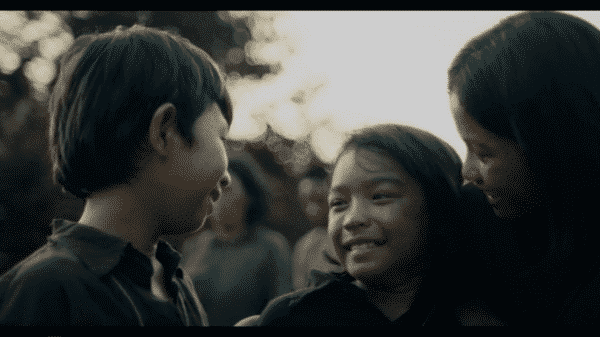
Despite really only being given enough to care about Loung, and maybe her parents to a point, on top of the first half being a bit of a bore, I’m still labeling this as something positive. The reason? First They Killed My Father combines a history lesson with the action a lot of people crave. It gives us this rare insight of how a child handles the brutality of war and doesn’t jump to her being older. First They Killed My Father hones in on this development period and may not inform us how losing everything, watching people get murdered, and even planting bombs which killed people, affected Loung – long term, but it gives you some idea.
But what really makes this film push past being something to throw in the mixed pile, like many a war movie, is that it inspires you to look up what happened. Be it a google search of the Wikipedia page, First They Killed My Father is the rare war film which acts as an introduction that sparks your own desire to learn further. Something very few films, whether related to war or another topic, ever do. For this film isn’t about inspiring patriotism or even sympathy really. It is about what all war films should be about: You understanding what the decision of your government, be it an active or indifferent participant, has on others. People who could very well be like you, but just of a different culture.
Similar Films
War Witch also features a girl who finds herself in a war-torn nation. The only difference is that it focuses more heavily on the child soldier aspect and includes a subplot featuring romance.
Images used for editorial and commentary purposes. All rights remain with their respective copyright holders.
